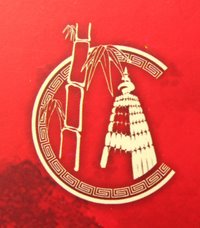Time to apologise to the Chinese of Assam’s Makum
Chinese School in Makum
On 19 November 1962, on the last day of China's India war, where we got the kind of drubbing that the Indians have been receiving in Old Blighty and Down Under consistently, Assam's police and Indian military personnel swept into Chinese neighbourhoods and the homes of Chinese living in India.
These were people who had been born here, were Indian citizens or married to Indians. They were gruffly ordered to get into or pushed into waiting jeeps and vehicles and driven to local police stations and eventually to trains. All this time, hapless, confused and humiliated, they kept asking, "Where are you taking us? Why are we here?" or "What do you want from us?" only to receive hostile silences or at times a helpless shrug from local policemen who wanted to but could not help them.
Those who reached the train station late were left behind. Thus parents were separated from their children, husbands from wives, siblings and friends from each other. It is an abomination, a horror that we have refused to face up to over the decades, hiding it not just under the carpet but wiping it off all histories. Or are there still some secret notes and notings, buried in some dusty and hidden files of the Ministry of Home Affairs or the Ministry of External Affairs and the Ministry of Defence that tell the story? Can these be dug out by some diligent and resourceful researcher or reporter or conscientious official and put in the public domain?
On that unexpected winter train journey — and November nights are cold in the desert — food, water, sheets or blankets, they rolled across the country to an internment camp in Deoli, Rajasthan. After a few days, a large group was sent to Kolkata and from there, in three ships, transported to China, a land they did not know.
Fifty years later, as our news media bristles with hostile reports about China, we are silent about the atrocity committed on a defenceless minority whose only crime was that they bore Chinese names.
n her powerful book, Makum, the scholar and novelist Rita Choudhury brings out the pain, horror and tragedy of those lost years. Written in Assamese and now being translated into English by the feminist publishing house, Zubaan, the book traces the history of this forgotten and shameful chapter in the history of free India. It is seen as extremely fashionable to do a spot of China-bashing these days, whether about Chinese threats to our borders, to our economy, to our environment security or to our conventional security concerns. But our bellicosity does not address the fact that a chunk of land in Arunachal Pradesh remains in Chinese hands: Sumdorong Chu, which the Chinese seized in 1986 and on which they built a helipad, triggering a confrontation that put some 400,000 soldiers on both sides against each other, raising fears about a military escalation. Luckily that abated.
But 50 years after they were externed from Makum town in Assam's Tinsukia district (Makum is a town in the area) and other parts of the region, our Indians of Chinese origin still live in sadness, forgotten by many and virtually discarded by the Centre. Dip Bhuyan, a young filmmaker, has put together a moving narrative of this lost community, who weep and speak, not in anger, but in sadness from their homes in Assam where a handful still live and in China where the "deportees" were packed off, caught between two Asian giants and two worlds. They still speak and write Assamese.
The Divided Soul traces their stories and stirs a sense of sadness mixed with anger that the victims of 1962 have not been rehabilitated or compensated. Perhaps local politicians are too scared of the China factor or being seen as "soft" on security issues to speak openly about it. Why are human rights groups and independent civil society organisations not talking about it either? We are talking about barely a few hundred such families in the Northeast, perhaps a few thousand more in Kolkata and other cities.
It is time to face the past and make amends. Prime Minister Manmohan Singh's government, besmirched by dirt, would do well to acknowledge the harm done to one of our tiniest minorities, who were pawns in a battle between two giants. It could help restore the dignity of both sides and a measure of trust. It could restore a balance to history.
by
SANJOY HAZARIKA
